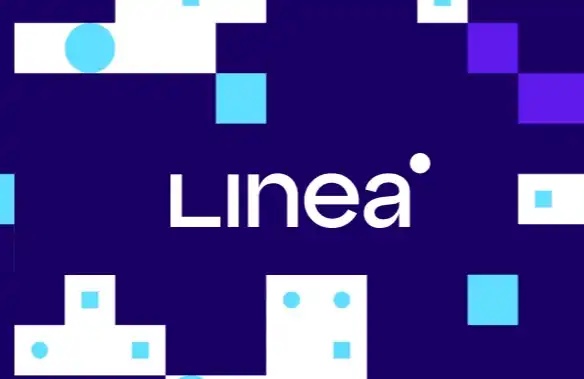This week in review | Grayscale wins against SEC lawsuit; CYBER releases emergency proposal to address multi-chain liquidity balancing issues.
BlockBeats will summarize the industry's key news content for the week (8.28-9.03) in this article, and recommend in-depth articles to help readers better understand the market and industry trends.
Weekly News Recap
GrayScale wins lawsuit against SEC
On August 29th, according to court documents, Grayscale won a lawsuit against the SEC. A three-judge panel in Washington overturned the decision by the US Securities and Exchange Commission (SEC) to block Grayscale's ETF. The court stated that "rejecting Grayscale's proposal was arbitrary and capricious because the SEC failed to explain its differing treatment of similar products." Bloomberg ETF analyst James Seyffart said that while Grayscale's victory does not mean that GBTC can be freely converted to an ETF, "it does move the conversion process forward."
Upbit platform CYBER price soaring, once breaking through $37, with a premium rate of 167% compared to other platforms
This week, the price of CYBER continued to rise, attracting attention from the community. On September 2nd, according to data from the Korean cryptocurrency exchange Upbit, the price of CYBER on the platform rose to 0.00136978 BTC, equivalent to 48,910 Korean won (37.1 USD) per coin, with a premium rate of 167%. At that time, the price of CYBER on the Binance platform was temporarily reported at 13.8 USD.
CyberConnect released an emergency proposal and passed it, but later it was rejected due to proposal editing errors.
On September 2nd, CyberConnect released an emergency proposal [CP-1] to address the issue of multi-chain liquidity balance. After the proposal was passed, the CYBER short-term price on the Upbit platform fell below $20. CyberConnect stated that there was an editing error in the data of the emergency proposal [CP-1] that was passed, so the proposal will be rejected. The actual amount in the community treasury is 1,088,000 CYBER tokens (written as 10.88 million tokens in the proposal), and the corresponding tokens have been unlocked.The US SEC delays approval of the spot Bitcoin ETF resolution for companies such as BlackRock and Fidelity
On September 1st, the US Securities and Exchange Commission (SEC) announced on Thursday that it will delay the approval decision for seven proposed Bitcoin ETFs due to the agency's review of recent application filings. In a separate filing, the regulatory agency stated that the decision deadlines for BlackRock's iShares Bitcoin Trust, Fidelity's Wise Origin Bitcoin Trust, VanEck Bitcoin Trust, WisdomTree Bitcoin Trust, and Invesco Galaxy Bitcoin ETF will be extended to October 17th, while the deadline for Valkyrie Bitcoin Fund will be postponed to October 19th.Chinese People's Court Newspaper Article: Virtual Currency is Legal Property and Protected by Law
On September 1st, the People's Court Daily published an article titled "Recognition of the Property Nature of Virtual Currency and Issues Related to the Disposal of Involved Property". The article analyzed the criminal law nature of virtual currency, stating that virtual currency has economic attributes and can be attributed to property. Current legal policies have not classified virtual currency as illegal goods. Therefore, under the current legal policy framework, virtual currency held by relevant entities in China is still legal property and is protected by law. Read the full article: "People's Court Daily: Virtual Currency is Legal Property, Involved Property Cannot be Confiscated Across the Board".
MAGIC Accuses Treasure Team of Selling Tokens at Half Price via OTC, Resulting in a Sharp Drop in MAGIC Price
On August 29th, ogle, a major player in the cryptocurrency industry, accused the Treasure team, a decentralized gaming ecosystem within the Arbitrum ecosystem, of selling MAGIC tokens at 50% of market price through OTC. Ogle also claimed that other whales in the community were also selling MAGIC. In response to rumors that the team sold tokens at half price through OTC, Treasure team member X_ stated in the Discord community that they "did not know the relevant information."
Binance reminds users to convert BUSD to other stablecoins before February 2024
On August 31st, according to an official announcement, Binance will gradually stop supporting BUSD due to Paxos ceasing to issue new BUSD tokens. Binance reminds users that they can convert their BUSD assets to other assets supported by the Binance platform before February 2024. Users can trade their BUSD assets for FDUSD with zero fees on the Binance spot market, or exchange their BUSD assets for FDUSD at a 1:1 ratio with zero spreads and zero fees on the flash exchange trading platform.
Binance Labs announced the launch of Web3 investment community ColLabs.
On August 31st, Binance Labs announced the launch of ColLabs on their social media platform. ColLabs is an invite-only Web3 investment community for investors, founders, and builders. It includes exclusive member content, real-time access to investment resources, investor insights, and access to the Binance Labs network.
Binance Pool launches Ordinals engraving service
On August 31st, according to an official announcement, Binance Pool launched the Ordinals engraving service, which makes it easier for users to directly engrave additional data onto individual satoshis, creating unique engravings on the Bitcoin network that will be securely stored. Users need to have a Taproot address before using this service.
A YouTube user accidentally leaked their mnemonic phrase during a live stream, resulting in the theft of over $60,000 worth of assets.
On September 1st, a Brazilian YouTube user named Ivan Bianco, who focuses on blockchain games and operates the Fraternidade Crypto channel, accidentally leaked the mnemonic phrase of his cryptocurrency wallet during a live broadcast. This led to the theft of nearly $60,000 worth of cryptocurrency and a batch of NFTs.Hong Kong implements a "dual license" system for virtual asset trading platforms, targeting security tokens and non-security tokens respectively.
On August 29th, according to Caixin, Hong Kong's licensing system for virtual asset trading platform operators is a "dual licensing" system. In addition to the licensing system for "security tokens" under the Securities and Futures Ordinance, there is another licensing system for "non-security tokens" under the Anti-Money Laundering Ordinance, which will officially take effect on June 1, 2023.
MakerDAO Buyback Resumes, Current Treasury Balance is $55.8 Million
On August 28th, according to Makerburn data, MakerDAO recently made a profit of over $7.45 million by selling $125 million RWA asset Monetalis Clydesdale. The current treasury has a remaining balance of $55.8 million, and the portion exceeding $50 million ($5.8 million) will be used to repurchase MKR and add it to Uniswap V2 LP with DAI. MakerDAO started the repurchase two days ago.
This Week's Popular Articles
WSJ Exclusive: Things You Didn't Know About Musk's Acquisition of Twitter
The world's richest person, founder of OpenAI and SpaceX, owner of X (formerly Twitter), and CEO of Tesla, Elon Musk's personal biography "Elon Musk: Tesla, SpaceX, and the Quest for a Fantastic Future" will be officially released on September 12. The book was written by Walter Isaacson, the author of "Steve Jobs", a well-known contemporary biographer in the United States. The Wall Street Journal excerpted part of the "Twitter War" and released it in advance. BlockBeats has compiled and translated it as follows:
Huawei Mate60 with Fire Encryption Mining Enterprises, What is the Real Impact of Mining on the Chip Industry?
The release of the new flagship smartphone Mate 60 Pro by Huawei in China has instantly caused a stir in the technology market. A message about Chinese mining enterprises "saving the day and promoting the development of China's 7nm chip industry" has spread in the community. The super-jun of the Benmo community's opinion on this matter has pushed the story of China's 7nm chip industry to a new climax in the currency circle. There are even online articles claiming that early orders from domestic mining companies for China's 7nm chips made them the "training heroes" of domestic 7nm chip production. In this regard, BlockBeats interviewed several professionals in the chip industry to hear their opinions.
Grayscale wins SEC lawsuit, is there new hope for DCG empire behind GBTC?
On August 30th, Grayscale won the lawsuit and overturned the SEC's decision to block Grayscale ETF. The crypto world was as lively as the night Ripple won the lawsuit. Although Grayscale's victory does not mean that GBTC will immediately become an ETF, it also indicates that a Bitcoin spot ETF is within reach.
Grayscale wins lawsuit, what will SEC do next?
On August 29th local time, Grayscale Investments won a key lawsuit against the US Securities and Exchange Commission (SEC). The judge of the Washington DC Circuit Court of Appeals ruled that the SEC's decision to approve a Bitcoin futures ETF was "arbitrary and capricious," while its decision to reject Grayscale's proposal to convert GBTC to a spot Bitcoin ETF was "arbitrary and capricious." So what is SEC's next plan, will they give up or fight to the end?
Social and Crypto, Telegram's Next Decade
In August 2023, the instant messaging protocol Telegram celebrated its tenth anniversary. In addition to celebrating its monthly active users exceeding 800 million, Telegram highlighted the Story feature on its anniversary day. This is a feature for sharing dynamic videos and pictures with contacts, similar to the feature on Meta's social platform Instagram. All signs indicate that the "paper airplane" that started with independence, security, and privacy seems to be breaking free from gravity and flying higher.
Exploring whether Ton can make Telegram the WeChat of the Web3 field through TG Bot
TG Bot is a strong cash flow/transaction-related, high-income but relatively low-risk and low-investment track, whose scale fluctuates with the on-chain MEME coin market. Ton is a Layer1 public chain originally designed by Telegram that can serve billions of users. It realizes fast, low-cost, and energy-efficient blockchain transactions. We predict that Ton, as Telegram's decentralized financial layer, "has the potential" to become the engine of the next bull market.
A Comprehensive Review of the Potential of TG Bot: Who Will Be the Next Unibot?
It can be said that Unibot has single-handedly driven the entire track and narrative with its huge increase. Nowadays, more and more tracks are beginning to appear with Telegram Bots of different types and different functions. What are the potential new Telegram Bots in the market? This issue of Bot Selection by BlockBeats will introduce more diverse Bots such as social, shopping, and gaming.
NFT Huge Negative? SEC's First-Ever Regulation of NFT
Impact Theory's "Founder's Keys" is the first NFT project in history to be charged by the SEC with "unregistered securities". On August 28th, the US Securities and Exchange Commission (SEC) charged Impact Theory, LLC, a media and entertainment company based in Los Angeles, with issuing unregistered encrypted asset securities in the form of NFTs. Faced with the SEC's charges, Impact Theory, LLC accepted a ban without admitting or denying the results of the SEC's investigation. In addition, Impact Theory agreed to destroy all of their "Founder's Keys" NFTs and to publish a notice about the ban on their official website and social media, giving up any royalty income that may have been obtained from future secondary market transactions involving "Founder's Keys".
What other projects does GambleFi, favored by Su Zhu, have besides the 5x surge of RLB?
After Telegram Bots, the market is anxiously searching for the next hot spot. In the past seven days, GambleFi has become the second-best performing token category on CoinGecko, second only to Telegram Bots, with a total market value of over $700 million. Su Zhu, the founder of Three Arrows Capital, recently shared on social media the altcoins he is focusing on in this cycle, including RLB in the DeFi/CeFi sector. At the same time, in the article "King of Speculation Su Zhu Returns, OLAS Surges Over 10x in Half a Month" BlockBeats also analyzed and pointed out that Su Zhu's address allegedly holds 4,000,000 RLB, worth about $587,000. What exactly is this project and why does it have the favor of Degen player Su Zhu?
Full text of the People's Court newspaper: Virtual currency is legal property, and the property involved cannot be confiscated uniformly
The People's Court newspaper of China published an article titled "Identification of the Property Nature of Virtual Currency and the Disposal of Property Involved in Cases". The article analyzed the criminal law attributes of virtual currency and stated that virtual currency has economic attributes and can be attributed to property. Current legal policies have not classified virtual currency as illegal goods. Therefore, under the current legal policy framework, virtual currency held by relevant entities in China is still legal property and is protected by law.
Why did China choose to cut interest rates while the rest of the world follows the US in raising them?
It's understandable that US interest rate hikes would affect the US itself. But why do crises erupt in other countries every time the US raises interest rates? And why do other countries follow suit when the US raises interest rates? Moreover, why is China cutting interest rates while the rest of the world is raising them?
What does the "friendly ruling" of Uniswap by a US court mean for DeFi regulation?
Regulatory compliance has become an unavoidable topic in the cryptocurrency industry. On one hand, there are mainstream CEXs such as Binance and Coinbase battling with US regulatory agencies, and on the other hand, Ripple, Grayscale, and SEC are fighting it out in and out of court. If we focus on the DeFi field, Tornado Cash has fallen due to regulatory issues, and its founder is facing imprisonment. Now, the DEX leader Uniswap has also joined this "popularity party" and presented the hard bone of DeFi regulation on the table.
zkSync earned $20 million in six months, how do Layer 2 solutions profit?
This year, Ethereum Layer 2 solutions have experienced explosive growth, with many projects entering the Layer 2 arena. Some believe that due to the token distribution expectations of Layer 2 solutions, many studios have become targets for anti-fraud measures. By charging transaction fees for token distribution, Layer 2 project owners have become the biggest winners in this game. Let's take a brief look at how Layer 2 project owners profit (referring to Rollup solutions).
Restaking Leader: EigenLayer's Business Logic and Valuation Estimation
With the completion of the Ethereum Shanghai upgrade, many LSD businesses have experienced rapid growth. EigenLayer, which is based on LSD assets and proposes the concept of Restaking, aims to provide services to many Rollups and Middleware, and its attention has continued to rise this year. Not only did it complete a large financing of 50 million US dollars with a valuation of 500 million US dollars in March, but its token's OTC price is rumored to have reached an astonishing 2 billion US dollars recently, comparable to the valuation level of public chain-level projects.
Behind the "Domestic Chip" of Huawei Mate60: SMIC's Foundry, Successful Training of Mining Machine Chips
On August 29th, the most explosive market information came from Huawei. In the spare time, WeChat groups discussing cryptocurrencies, stocks, and real estate all talked about Huawei Mate60. Without any preheating, notification, or promotion, Huawei suddenly launched the new generation flagship phone Mate 60 Pro on its official website under the name of "Pioneer Plan". The most concerned issue is the chip - where does the chip come from?
Welcome to join the official community of BlockBeats by LuDong
Telegram subscription group: https://t.me/theblockbeats
Telegram communication group: https://t.me/theblockbeatsApp
Twitter official account: https://twitter.com/BlockBeatsAsia
Welcome to join the official BlockBeats community:
Telegram Subscription Group: https://t.me/theblockbeats
Telegram Discussion Group: https://t.me/BlockBeats_App
Official Twitter Account: https://twitter.com/BlockBeatsAsia


 Forum
Forum Finance
Finance
 Specials
Specials
 On-chain Eco
On-chain Eco
 Entry
Entry
 Podcasts
Podcasts
 Activities
Activities
 OPRR
OPRR








